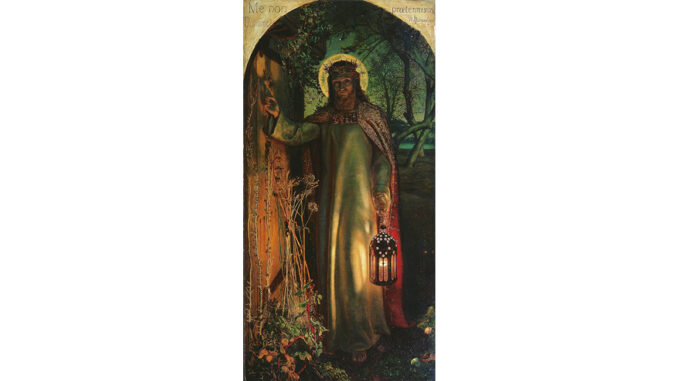
There was a certain kindergarten teacher who had one of her pupils mark on the blackboard each day to represent the weather. She had colored crayons, and different colors represented the different kinds of weather: white for snow, gray for cloudy, yellow for sunshine, etc. A child was permitted, as a reward for good conduct, to go each day and make the drawing on the board to represent that day’s weather.
One day a little boy was permitted to go to the board for this purpose. In looking in the crayon box, he failed to find the yellow crayon, which represented the sunshine. After looking vainly, he cried out, ”Somebody has stolen the sunshine.”
Somebody had taken away that which represented the sunshine. And so there are “somebodys” — and all too many of them in the world — who take away the sunshine from someone’s life. Many lives are dark and sad, not because of what the people themselves do — but because of what others do.
It is true that we often shut out our own sunshine. Our own conduct often plunges us into darkness, sorrow and grief — if we do not follow God’s will. But there are many who do right themselves and who might have sunshine — if others would give them an opportunity. Husbands and wives make their companions unhappy. Parents darken the lives of their children. Children bring sorrow and suffering to their parents. Churchgoers cast a shadow over someone’s life.
They become sunshine thieves. They steal someone’s sunshine, and worst of all they are no better for it themselves, but worse. If a man steals because he is hungry or has not sufficient clothing, we can more easily excuse him than we can the one who steals when he has no such need. So, the one who takes the sunshine from any life by any act that is not necessary or that serves no good purpose, is entirely inexcusable. Not a thing can be said in approval of his conduct.
One way of stealing people’s sunshine, is to criticize them. When a person feels he has done his best, he naturally feels that what he has done merits approval. But if, instead of this he receives criticism — if someone makes light of his work or sneers at what he has done — he feels discouraged. He feels like not trying again. All the pleasure from his work has gone. The critic has stolen his sunshine, and the critic is not helped thereby. This sentiment echoes the truth of Proverbs 12:25: “Anxiety weighs down the heart, but a kind word cheers it up.” A simple word of encouragement can change the course of someone’s day or even life, countering the weight of discouragement and sparking renewed hope and effort.
It is true some things must be criticized. Some people’s conduct must be criticized. If we must criticize someone’s work, let us do it in a helpful way that encourages improvement. Let us first point out the good qualities in it. Let us say what we can in praise of it. Let us give our approval as far as approval can be given. Then let us suggest that it might have been done better another way; or, “You can improve on this particular part thus.” Or, “Do you not think it would be better to do this part of it thus?” or, “Did you ever try doing it this way?”
Constructive criticism does not discourage. This is being helpful, rather than hindering. So, if you must criticize people, be sure not to take their sunshine from them in doing it. Approval encourages. Condemnation discourages. We should be reminded of the wisdom found in Ephesians 4:29: “Do not let any unwholesome talk come out of your mouths, but only what is helpful for building others up according to their needs, that it may benefit those who listen.” This verse calls us to speak in ways that uplift and strengthen, reinforcing the importance of our words in fostering a supportive environment.
Another way sunshine is stolen is by whispering forebodings. Some people are always looking forward to the future with the expectation that something bad will happen. There will be trouble; there will be sickness; something bad is going to happen — what gloomy prophecies they make. They are always throwing cold water on everything. They are always saying, “Look out now, you have to watch people.”
Oh, yes, reader, you know people of this sort. The atmosphere about them is always discouraging. They croak like a raven with prophecies of evil. Regardless of the path before them, they are always ready to say: “Oh, yes, but just wait — something bad will happen.” Some of these people are glad to help make their prophecies come true. They take pleasure in making things more difficult for others.
We cannot afford to take any of the brightness or joy out of the life of anyone — not even a little child. Let us increase the sunshine, instead of diminishing it. Let us add to the sum of joy in the world. Let us lift up, and not cast down.
Charles Wesley Naylor is considered one of the most prolific and inspiring songwriters of the Church of God. He was bedridden for much of his adult life but wrote eight books, a newspaper column and more than 150 songs. Many of his writings are in the public domain.



